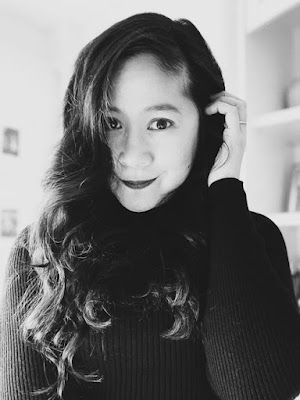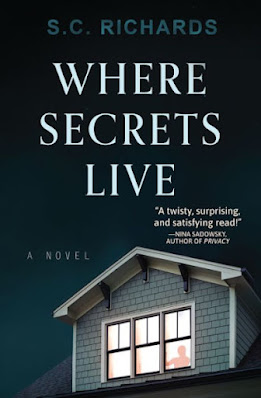Lygia Day Peñaflor
Lygia Day Peñaflor is the author of Creep: A Love Story, All of This is True, and Unscripted Joss Byrd. She also teaches young Hollywood stars on television and movie sets. Her students have included cast members of Gossip Girl, Boardwalk Empire, Spielberg's West Side Story, and others. She lives on Long Island, NY, where she rides horses and flies from a trapeze.
Spielberg's West Side Story, and others. She lives on Long Island, NY, where she rides horses and flies from a trapeze.
My Q&A with the author:
How much work does your title do to take readers into the story?Visit Lygia Day Peñaflor's website.
There couldn’t be a more perfect title for this book. Creep: A Love Story sets the stage immediately. We have our narrator Rafi: a creep. And we have Laney Villanueva and Nico Fiore: a love story. When the popular couple walks into the Holy Family High School attendance office, where Rafi works at the front desk, she is instantly obsessed with them.
“Creep” by Radiohead was a huge inspiration for this novel. Those who know the song will pick up on its dark, desperate tone from the title. The words “weirdo” and “I don’t belong here” will come to mind, too, which are perfect ways to describe Rafi and her place in Laney and Nico’s lives, as her behavior escalates to full stalking mode. This title understood the assignment.
What's in a name?
I used the name Holy Family High School to emphasize the deep connection Rafi feels with her school. Rafi’s own family is fractured. Her mom left her to be raised by her grandparents, and her dad travels as a roadie for a touring rock band. Holy Family is the place where Rafi feels closest to her parents, since they are graduates of the school and fell in love there.
For Laney Villauneva, I wanted a last name that’s recognizably Filipino and also very pretty. Villanueva sounded just right. I got the name Laney from Rachel Leigh Cook’s character, Laney Boggs, in the movie She’s All That. It’s one of those movies I always watch if it happens to be on. It happened to air often while I was drafting. I loved the way Freddie Prinze Jr. said “Laney.” It sounded like he loved her.
How surprised would your teenage reader self be by your novel?
My teen self would be floored. The premise of this book came from a brief encounter I had when I was a senior in high school. A freshman I’d never spoken to before approached me and said, “You have the cutest boyfriend.” Teen Me would be shocked that I remembered this and that I’ve written an entire novel based on it.
As a teenage reader, I enjoyed books that put me inside a character’s mind – I would love the intimacy of Rafi’s first-person present-tense narrative. I would be surprised that other people fantasize about spying on their classmates and thrilled to witness Rafi act on that fantasy to such a disturbing degree.
Do you see much of yourself in your characters? Do they have any connection to your personality, or are they a world apart?
I definitely admired the cool senior couples when I was in school. They seemed very mature, and their secret world of couplehood fascinated me. I always wondered about them, “Are they happy? Are they sweet to each other? Are theydramatic and tumultuous? Are they in love?” I gave Rafi my curiosity and awe, except on a much more intense level. I see myself in Laney, too, because I became one of those enviable seniors with a cute boyfriend. Laney is also a dancer, and she’s from a Filipino American family with a close-knit group of cousins. She and I share those things in common. I feel connected to both of these characters. I think I always will.
What non-literary inspirations have influenced your writing?
I used to be embarrassed to say that I learned story structure mostly from television and movies over books, but I’m not embarrassed to admit that anymore. It doesn’t matter where you acquire these skills, as long as you get them from somewhere. I absorbed so much of what I know about writing from Degrassi, The Wonder Years, Stand by Me, Little Darlings, Clueless, Skins, ‘80s sitcoms, Frasier. They taught me voice, point of view, character development, pacing, and plot. And dialogue! I love dialogue the most. I learned how to hear it and how to write it from watching television.
--Marshal Zeringue










